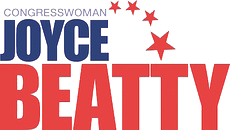How a Democratic “Minority-Engagement Program” Is Fighting Ohio’s Voter-Roll Purges and Their Impact on Black People
The Ohio Democratic Party has created a program designed to target black voters and capitalize on community grassroots voter initiatives ahead of the 2018 midterm elections.
The “minority-engagement program” was established earlier this year, just before the Supreme Court ruled that states can kick people off of voter rolls if they haven’t participated in several elections and failed to respond to a notice from election officials, as reported by the The New York Times. The Times recently reported that Ohio is “more aggressive than any other state in purging its voter rolls,” and noted that the state’s purging process, which critics say disproportionately affects Democrats, is initiated after one missed federal-election cycle.
Reuters reported that at least 144,000 people were removed from voting rolls in Ohio’s largest three counties.
As midterm elections draw closer, making sure people know their status is only half the battle; Tuesday, October 9, is the deadline for registering to vote in Ohio.
Minority-engagement consultant Meredith Turner says organizers are heavily focused on encouraging voters to make sure they’re registered to vote, especially if they haven’t participated in the last few elections. She says they also stress the importance of making sure your information is up to date.
Democrats in the state have their work cut out for them in the upcoming gubernatorial election and other local races. Trump won Ohio in 2016, and Republicans currently hold 12 of the state’s 16 seats in the U.S. House of Representatives, as noted by Bloomberg.
Democrats in the key swing state were inspired to launch the minority-engagement program after 98% of black women voted in Alabama, overcoming that state’s voter-suppression tactics to help elect Doug Jones over Roy Moore, who was accused of sexual misconduct by multiple women (and has repeatedly denied the allegations), in a special election for a vacated seat in the U.S. Senate.
“What we learned from the Doug Jones special election is the local community folks are the best validators,” Democratic organizer Ron McGuire tells Teen Vogue.
The isn’t a new idea. Community leaders, including clergy, have long been involved in engaging voters ahead of political elections, especially in minority populations. But McGuire says the minority-engagement program has been working to engage these leaders in a “consolidated effort.”
The work of minority-engagement program organizers includes visiting high schools with teens who are eligible to vote, jails, senior-citizen homes, and other community centers. Cleveland salon owner and minority-engagement consultant Kim Thomas says she became heavily involved with grassroots organizing during the 2016 presidential campaign, with hopes of helping Democratic candidate Hillary Clinton get elected. In an effort to help this time around, Thomas says local barber shops and salons have converted their small businesses into “mini campaign offices,” helping people register to vote and be knowledgeable about candidates.
McGuire says the idea for the minority-engagement program was sparked by similar initiatives that had been implemented in Franklin County, which houses Ohio’s capital city, Columbus. While working for congresswoman Joyce Beatty’s campaign, and then in her office, McGuire has been able to brainstorm ways to expand on these ideas and implement them statewide.
“We always figured you needed a movement, and that was really based on what happened in the 1960s, when we were fighting for civil and voting rights,” Beatty says. “We started putting everybody in the room and then we thought, Why wouldn’t we go old school and put ministers in the room? When you read our history, whether you go back to Frederick Douglass, Rosa Parks, or Martin Luther King, there was always a spiritual [element]. With A. Philip Randolph, there were unions engaged.”
Beatty says, just like in previous movements, young voters are a very integral part of engaging voters today.
“If we could have young people creating a movement through digital and electronic media, we win in more elections,” she says. “And we win on the issues that we need to be electing people to help us with.”
Earlier this year, Beatty had her own special moment on Twitter, when she danced to Drake’s “In My Feelings,” and posted, “I don’t know who Keke is, but I want her to vote next November because this @WhiteHouse has me and many other Americans ‘in my feelings,’” as reported by CNN.
In her role as minority-engagement consultant, Turner, a member of the African-American sorority Delta Sigma Theta, says she’s recently worked with other Greek organizations on voter initiatives, and scheduled time for candidates to visit local churches.
“When I go visit these churches with these candidates, I’m putting my credibility on the line,” Turner says of advocating for candidates she believes can truly make a difference in her community. “One thing I won’t do is have somebody use me as a tool and then just, poof, be gone tomorrow. If they can’t give a couple of hours on Sunday, I can’t really ask somebody to give their vote.”
McGuire says the Democratic National Convention has been watching the efforts of the minority-engagement party to see how other states can galvanize black voters.
Turner says she believes recent elections have been a wake-up call for the political party: “I think the party is sending a really strong message that we are invested in people who look like you, talk like you, and care about the same issues that you care about.”
This article was originally published by Teen Vogue on October 9, 2018.
Jewel Wicker contributed to this story.
